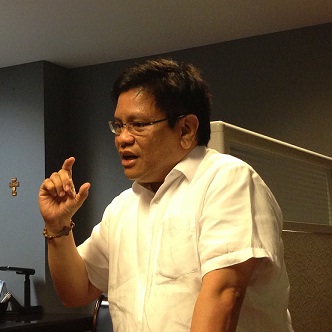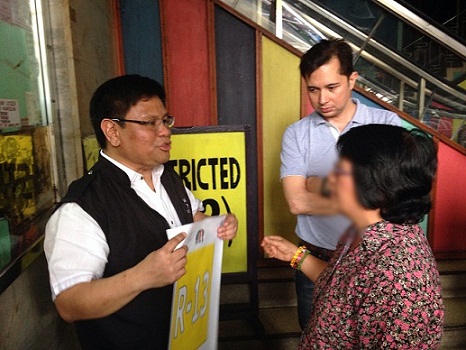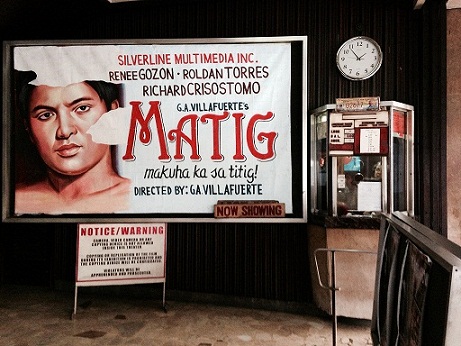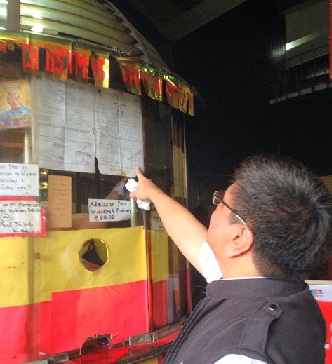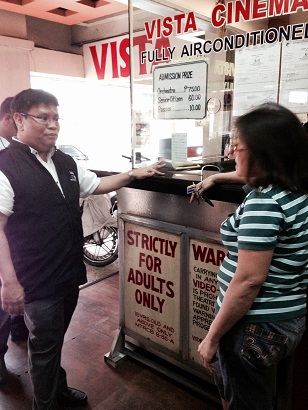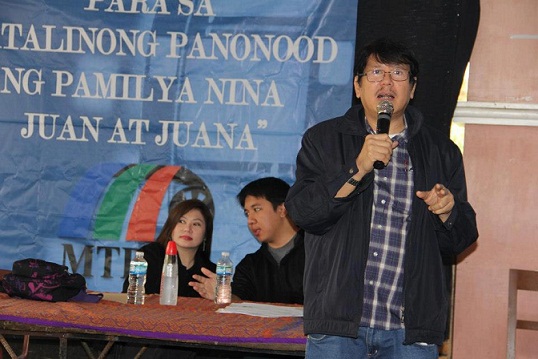A number of parents and single adult friends who happened to watch some episodes of Pinoy Big Brother 737 were appalled by the very sexual behavior of housemates, who are all teenagers –the youngest are 12 years old.
Which made me wonder, if the audience have that reaction watching the reality show, how about the parents of those housemates?
PBB 737 is the 12th PBB. Most of the previous shows were in the higher age brackets.
Big Brother is a reality game show franchise created by Dutch John de Mol. A group of people called “housemates” live together for a long period of time (In PBB 737, it’s seven weeks) in a specially constructed large house.
During their time in the house they are isolated from the outside world. Contestants are continuously monitored by in-house television cameras as well as personal audio microphones during their entire stay.
It’s supposed to be a test of character.
Every week, a housemate/ contestant is evicted by votes from the viewers. The last remaining contestant becomes the grand prize winner which includes cash and a house and lot. The TV exposure has helped winners including non-winners carve out careers in show business.
MTRCB stepped into the picture upon getting complaints about the show from parents saying that it failed to protect the welfare and development of minor “housemates” as well as the general viewing public.
MTRCB said the complaints cited scenes offensive to the sensibilities of the viewing public such as but
not limited to the alleged “bromance” – love and affection between two males – between housemates a Karlos Lorerzo “Ker:zo” Gutierrez, 18, and l2-year old Bailey Thomas May.
They also cited the huddling together and engaging in flirtatious talks and actions among male and female housemates; the indecent proposal by housemate Ryan to his co-male housemate if the latter could be his “mistress; the Iack of privacy of a young Muslim woman and interaction with non-Muslim males.
One viewer said he was turned off by the flirtations of a teenage housemate who is a single mother with another housemate.
MTRCB called executive of ABS-CBN involved in the controversial show , Dr. Zandro G. Rapadasof the U.P. College of Mass Communication and Ms. Arlene S. Lacson, who had complained about PBB737; and resource persons, among them, E arl P. Saavedra, of the Commissioner of the National Youth Commission; Georgina Gozo-Oliver of the Philippine Psychiatric Association; Director Jose Javier Reyes; psychologist Fr. Filoteo Mangulabnan, S.J.
The meeting resulted in MTRCB ordering ABS-CBN to institute remedial measures which include “To immediately cease and desist from requiring participants to engage in activities and tasks which may be deemed to be hazardous to their life and safety, or prejudicial to their physical, psychological, emotional, moral, spiritual, and social well-being.”
The show’s rating was changed from Parental Guidance (PG) to Strict Parental Guidance (SPG).
Programs classified as “SPG” may contain more serious topic and theme, which may not be advisable for children to watch except under the very vigilant guidance and presence of a parent or an adult.
Isn’t it ironic that these teen housemates, if they were the TV viewers, should not be watching these shows without the guidance of an adult when inside the Big Brothers house they are on their own, on display to the public.
MTRCB also limited the ABS-CBN’s application for permit to exhibit to seven episodes per application in order to ensure the correct and proper implementation of the committed remedial and self regulatory measures.
Many are asking, “why doesn’t MTRCB just order the scrapping of the show?”
The Philippines is still a democratic country and the Board is conscious of every citizen’s right to freedom of expression. Besides MTRCB, by its name, does classification of movies and TV shows to better guide the public for a more intelligent and worthwhile viewing.
It’s really up to the public. Don’t watch shows that are not worth watching.

